Cashing in on the cash crop: Growers rethink strategy as tobacco production drops
Blame low prices, absence of market and lack of government support.
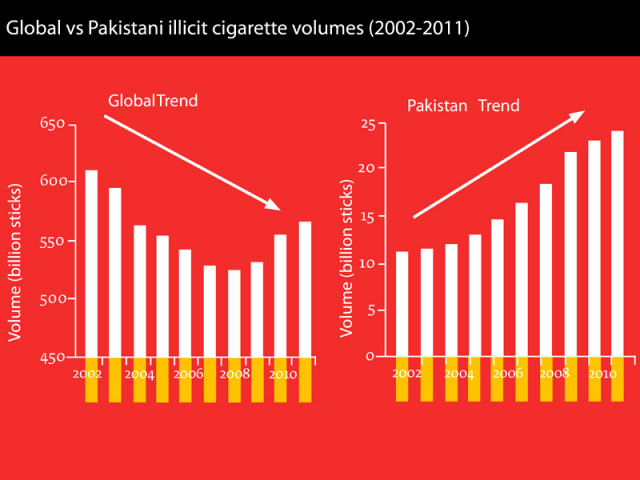
Blame low prices, absence of market and lack of government support.
The area planted with tobacco crop as well as production have been declining for the past two years, according to official statistics, forcing growers to rethink their cultivation strategy to avoid losses.
In the two years, the cultivated area decreased over 12% and production dropped about 6%.
In 2010-11, the tobacco crop was planted over 51,223 hectares, which decreased to 45,841 hectares in 2011-12, a decline of 10.5%, according to the Pakistan Tobacco Board. The cultivation dropped below 45,000 hectares in 2012-13, down a further 2%.
In terms of production, the output was 102.8 million kilogrammes (kg) in 2010-11 which fell 4.8% or 4.9 million kg in 2011-12 and stood at 97.9 million kg, according to the PTB. Production further dipped to 97 million kg in 2012-13.
Growers ascribe the loss of area and production to low prices for their produce. They also cite absence of government support for the low production.
The growers complain about the absence of a proper tobacco market which has kept prices low and left them at the mercy of middlemen. “Growers do not have a proper place to sell their crop,” a farmer said.
Punjab, which produces Dark Air-cured Hookah Tobacco and Kala Patta, is also feeling the fallout of this scenario. However, cultivation in the province is very low with no market to sell the crop.
Malik Abdul Rauf, a tobacco grower in Peer-Mehal, Punjab, told The Express Tribune he had been planting tobacco over 32 acres for the last 20 years and was earning good profit.
He got a profit of Rs90,000 per acre, which was better than other crops. Expenditure was estimated at Rs30,000 to Rs35,000 per acre and return was Rs120,000 to Rs130,000.
However, he argued that there was not a single proper tobacco market in Punjab. “We sell to middlemen who pick the tobacco from our fields. There is no definite price and we have no knowledge of market prices for our crop,” he said.
Though the federal government has set a price mechanism, it exists only on papers, according to growers.
According to the market mechanism, every tobacco company intending to make purchases indicates its requirement to the Tobacco Board for the coming crop by October 21 every year.
The board then publicises the need for various types of tobacco leaves before the commencement of planting season in a bid to ensure that the growers get a good return.
The board is required to promote tobacco cultivation, but its reach seems to be limited. For instance, there is no office of the board in Faisalabad region, discouraging the growers from planting the crop on a wide scale.
Punjab Agriculture Department District Officer Abdul Hameed told The Express Tribune the department was giving training and creating awareness among tobacco farmers, but they were reluctant to cultivate the crop as there was no market for their produce.
Acknowledging that other crops have markets like wheat, cotton, rice and vegetables, he said tobacco had no proper marketplace in Punjab and buyers and middlemen came from other provinces to buy the crop.
Sahiwal, Peer Mehal, Okara and Kasur belt produces better quality tobacco and middlemen and buyers come from Khyber-Pakhtunkhwa to buy the crop.
If the middlemen refuse to buy, it causes a big loss to the growers and forces them to switch to other crops.
“Government has not been able to start tobacco planting on a wide scale in Punjab. Only some growers are earning handsome profit from their crops,” said Tanveer Ahmad, another tobacco grower.
Tobacco is a labour-intensive crop requiring a higher number of workers compared to other crops. “Tobacco crop needs 30 to 35 workers per acre of land. But in many areas of Punjab, labour is expensive,” Ahmad said.
---------------------------------------------------------------------------------------------------------------------------------------------
[poll id="1211"]
Published in The Express Tribune, September 2nd, 2013.
Like Business on Facebook, follow @TribuneBiz on Twitter to stay informed and join in the conversation.

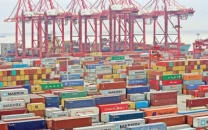

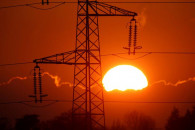


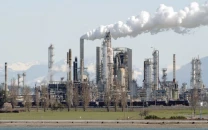

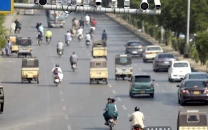

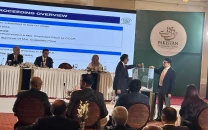

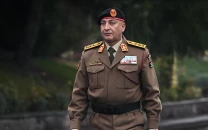






COMMENTS
Comments are moderated and generally will be posted if they are on-topic and not abusive.
For more information, please see our Comments FAQ